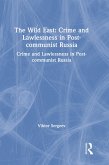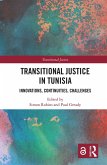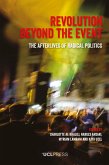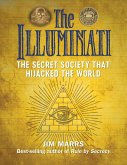The Wild East bridges political economy and anthropology to examine a variety of il/legal economic sectors and businesses such as red sanders, coal, fire, oil, sand, air spectrum, land, water, real estate, procurement and industrial labour. The eleven case studies, based across India, Pakistan and Bangladesh, explore how state regulative law is often ignored and/or selectively manipulated. The emerging collective narrative shows the workings of regulated criminal economic systems where criminal formations, politicians, police, judges and bureaucrats are deeply intertwined.
By pioneering the field-study of the politicisation of economic crime, and disrupting the wider literature on South Asia's informal economy, The Wild East aims to influence future research agendas through its case for the study of mafia-enterprises and their engagement with governance in South Asia and outside. Its empirical and theoretical contribution to debates about economic crimes in democratic regimes will be of critical value to researchers in Economics, Anthropology, Sociology, Comparative Politics, Political Science and International Relations, Criminologists and Development Studies, as well as to those inside and outside academia interested in current affairs and the relationship between crime, politics and mafia enterprises.
Praise for The Wild East
'This volume is a useful corrective to narratives, oriented on the corporate sector and national politics, which do not tell the full story of the Indian economy. The Wild East reminds us, forcefully, that India's economy and politics have regional and local aspects that need to be kept in view.' Commonwealth & Comparative Politics
'This grimly fascinating book showcases cutting-edge research on the close links between criminality and capitalism in contemporary South Asia. These searing accounts of "the normalization of criminal accumulation" need to be read and understood as much by citizens as by those claiming to represent them.'
Jayati Ghosh, Jawaharlal Nehru University, New Delhi
'A fascinating grasp of the symbiosis of state and criminal power. Eleven case studies across India, Pakistan and Bangladesh allow us to delve into unwritten rules and open secrets of everyday criminal economies and political machineries of the Wild East. Conceptual framing of the book, reminding the Wild West of its own trajectories, will certainly appeal to those disenchanted with normative, top-down, Washington consensus based discourses.'
Alena Ledeneva, Founder of the UCL Global Informality Project
By pioneering the field-study of the politicisation of economic crime, and disrupting the wider literature on South Asia's informal economy, The Wild East aims to influence future research agendas through its case for the study of mafia-enterprises and their engagement with governance in South Asia and outside. Its empirical and theoretical contribution to debates about economic crimes in democratic regimes will be of critical value to researchers in Economics, Anthropology, Sociology, Comparative Politics, Political Science and International Relations, Criminologists and Development Studies, as well as to those inside and outside academia interested in current affairs and the relationship between crime, politics and mafia enterprises.
Praise for The Wild East
'This volume is a useful corrective to narratives, oriented on the corporate sector and national politics, which do not tell the full story of the Indian economy. The Wild East reminds us, forcefully, that India's economy and politics have regional and local aspects that need to be kept in view.' Commonwealth & Comparative Politics
'This grimly fascinating book showcases cutting-edge research on the close links between criminality and capitalism in contemporary South Asia. These searing accounts of "the normalization of criminal accumulation" need to be read and understood as much by citizens as by those claiming to represent them.'
Jayati Ghosh, Jawaharlal Nehru University, New Delhi
'A fascinating grasp of the symbiosis of state and criminal power. Eleven case studies across India, Pakistan and Bangladesh allow us to delve into unwritten rules and open secrets of everyday criminal economies and political machineries of the Wild East. Conceptual framing of the book, reminding the Wild West of its own trajectories, will certainly appeal to those disenchanted with normative, top-down, Washington consensus based discourses.'
Alena Ledeneva, Founder of the UCL Global Informality Project
Dieser Download kann aus rechtlichen Gründen nur mit Rechnungsadresse in A, D ausgeliefert werden.









